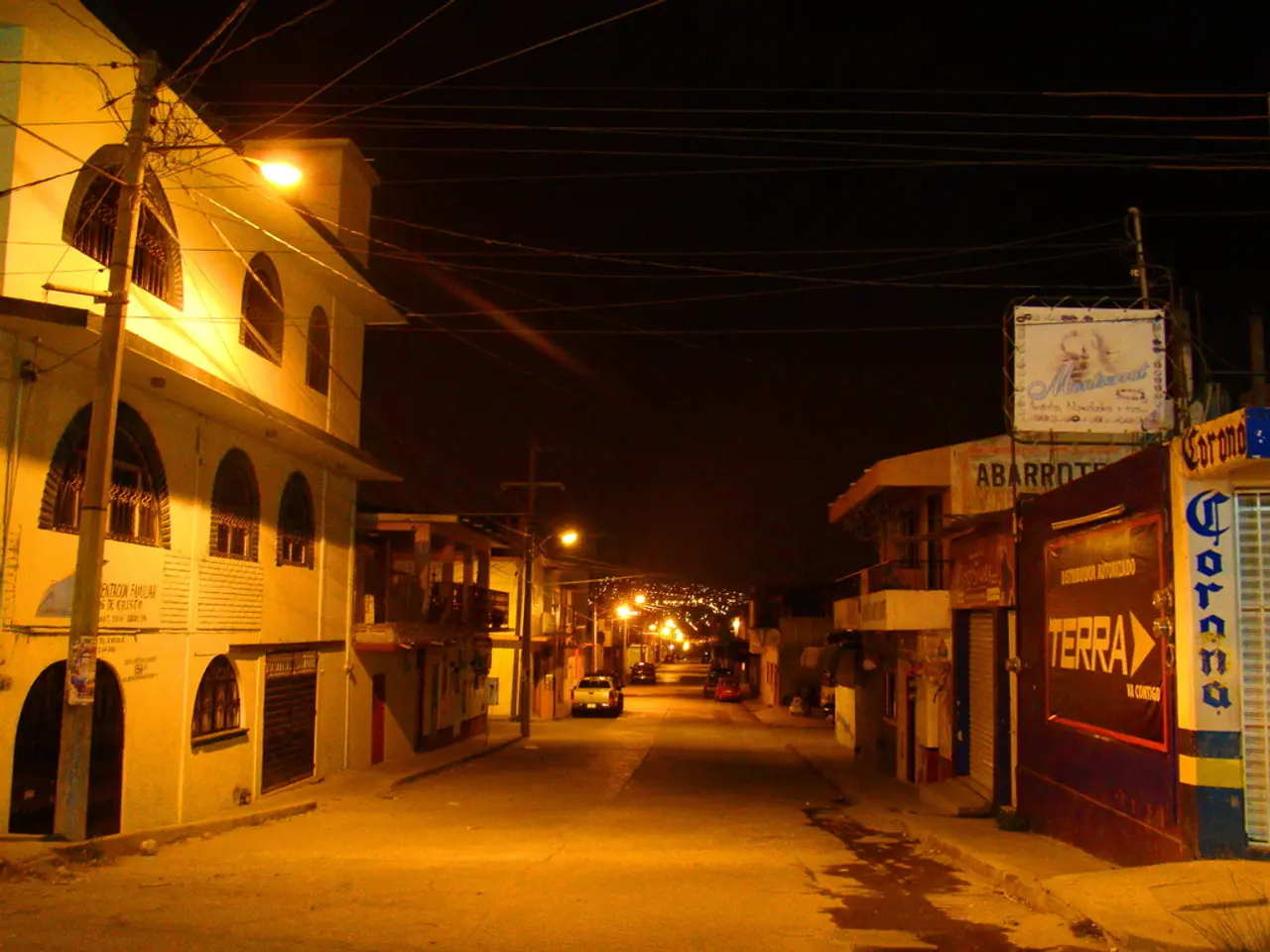Citizen Power
In the heart of Germany, a student-run initiative named "BürgerEnergie Berlin" is making waves, seeking to buy back Berlin's power grid from the private sector and democratise it. The goal is to green the grid and return power to the people.
Vattenfall, a Swedish energy giant, has been the most recent operator of Berlin's power grid, but the Renewable Energy Act of 2000 in Germany has resulted in a third of all electricity being generated from renewable sources, with half of that capacity being in citizens' hands. This shift towards renewable energy has been attributed to a unique interplay of grassroots activism and high-level policy, as noted by Brett Fairbairn, director of the Centre for the Study of Co-operatives.
Luise Neumann-Cosel, one of the group's founders, is a 29-year-old activist who was inspired to start the initiative while working as a student intern in Berlin's parliament. Neumann-Cosel is also involved in solar projects in Berlin where Mieterstrom (renter's electricity) is booming.
BürgerEnergie Berlin has raised over 11 million euros from Berliners, with an investment of as little as one euro per member. The group is one of three bidders in the process to acquire the power grid, but the process has stagnated due to red tape and legal technicalities.
The group argues that the power grid is a public service and its operation should not be profit-motivated. This sentiment is echoed in the increasing number of energy co-operatives in Germany, which saw a sixfold increase between 2008 and 2013.
In Canada, energy co-operatives exist but are typically rural, small in scale, and subject to provincial legislation, unlike in Germany where the regulatory framework is national and advantageous. A notable example is Co-operative Hydro Embrun in Ontario, which enjoys distribution rates that are half what Hydro One customers are paying since their request for co-operative ownership of their grid in 1998.
The future of energy in Berlin and Germany is a topic of ongoing discussion and action. Events such as the "Lange Nacht des Klimas" and the Bündnis Bürgerenergie e.V. convention demonstrate active engagement in citizen-led energy initiatives.
Ian Rowlands, an observer of the energy sector, is intrigued by a nascent trend he calls the "Uberization" of the grid, where individuals could choose local power producers and their prices through an app. A Dutch startup called Vandebron is already offering this service. As Berlin's power mix currently relies heavily on coal, with renewables accounting for less than 2%, the potential for a shift towards a more decentralised and democratic energy system is significant.
However, the specific status of BürgerEnergie Berlin's initiative to buy and democratize Berlin's power grid is not currently clear. For more detailed and focused information, further research is required. The journey towards a greener and more democratic energy future in Berlin and Germany continues, and BürgerEnergie Berlin is a key player in this exciting transformation.
Read also:
- Washing Clothes in Rainy Weather: Handy Laundry Hacks Revealed
- Preparation for the upcoming winter of 2025, according to The Farmers' Almanac, involves bracing for numerous snowstorms that might potentially harm gardening plans. Here is a guide on how to ready your garden ahead of time.
- Karina, former Stock Models model, announces recovery after an encounter with drugs, backed by TikTok videos garnering millions of views.
- Is the remote work setup successful?







